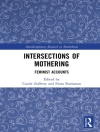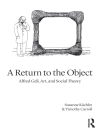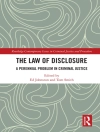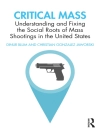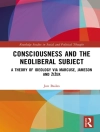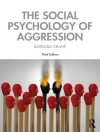COVID-19 turned the world as we knew it upside down, impacting families around the world in profound ways. Seeking to understand this global experience, Family Life in the Time of COVID brings together case studies from 10 countries that explore how local responses to the pandemic shaped, and were shaped by, understandings and practices of family life. Carried out by an international team during the first year of the pandemic, these in-depth, longitudinal, qualitative investigations examined the impact of the pandemic on families and relationships across diverse contexts and cultures. They looked at how families made sense of complex lockdown laws, how they coped with collective worry about the unknown, managed their finances, fed themselves, and got to grips with online work and schooling to understand better how life had transformed (or not). In short, the research revealed their everyday joys and struggles in times of great uncertainty. Each case study follows the same methodology revealing experiences in Argentina, Chile, Pakistan, Russia, Singapore, South Africa, Sweden, Taiwan, the United Kingdom and the USA. They show how local government responses were understood and responded to by families, and how different cultures and life circumstances impacted everyday life during the pandemic. Ultimately the analysis demonstrates how experiences of global social upheaval are shaped by international and local policies, as well as the sociocultural ideas and practices of diverse families.
Praise for Family Life in the Time of COVID
’Family Life in the Time of COVID takes us into homes that, worldwide, became the total worlds of people ordered to ‘stay at home’. These poignant, evocative and engaging accounts illustrate how, in the confusion and frustration of COVID’s first two years, people found bravery and inspiration – to navigate breaking points, wrestle with boredom, cook and clean, educate and mediate, and care for others and for self.’
Professor Lenore Manderson, Distinguished Professor of Public Health and Medical Anthropology, School of Public Health, University of the Witwatersrand, Johannesburg, South Africa
’This wonderful book tackles a topic of vital importance. The COVID-19 pandemic has placed huge stresses on families across the world as people are faced with fears about loved ones’ health, managing children’s education, caring for older family members, and attempting to avoid infection or cope with illness while continuing to support the family financially. All these topics and more are covered in depth, highlighting both the shared and context-specific dimensions of these experiences across diverse nations and cultures.’
Deborah Lupton, SHARP Professor, Centre for Social Research, Health and the Social Policy Research Centre, University of New South Wales Sydney, Australia
’This is a really excellent collection. It will be a marker in the broad field of the impact of major upheavals on family lives and relationships beyond the COVID pandemic itself. The extent of international contributions goes beyond the cross-national reach of other collections on family lives.’
Rosalind Edwards, Professor of Sociology, University of Southampton
’The book is a marker in the field for thinking about, collaborating and investigating the impact of major upheavals on family lives and relationships in the future. A marker that can usefully be followed by other teams of researchers in the future. The book is also an important historical documentation of our family lives in the time of COVID, one that will inform this and future generations of scholars’ reflections, providing insightful understandings of an unprecedented period’
The British Journal of Sociology
’There is much to applaud about this volume…. it is remarkable that the authors were able to create this volume at all. Consider the context in which they undertook this project. It was the spring of 2020 and most academic institutions around the world had closed. No one knew how long the closures would last. It was a scary and uncertain time, as the chapters in this volume attest, and one in which just navigating the day to day challenges of grocery shopping, taking care of children and the elderly, tending to the sick and managing one’s nerves was a lot to manage. It was in this chaotic and frightening context that the editors of this volume launched a global research project without ever leaving home. I am impressed by the diverse network of scholars they were able to assemble, the organizational structure and discipline they achieved, and the rich methodological and empirical contributions the project produced.’
Social Forces
Innehållsförteckning
List of figures
List of tables
Artist’s note about the cover image, Sabika Qaisar
List of contributors
Acknowledgements
Key terms and acronyms
1 Families and COVID-19: The beginning of our story
Humera Iqbal, Charlotte Faircloth, Katherine Twamley and Rachel Benchekroun
2 Argentina: Gendered effects of the COVID-19 lockdown and the transformations in wellbeing
Mariana de Santibañes and Gabriela Marzonetto
3 Chile: Pandemic, neoliberal precarity and social outbreak
Ana Vergara del Solar, Mauricio Sepúlveda, Juan Pablo Pinilla, Daniela Leyton, Cristián Ortega and Claudia Calquín
4 Pakistan: Families in Karachi recalibrating care during COVID
Safina Azeem, Shama Dossa, Asiya Jawed, Ayesha Khan, Mahnoor Mahar and Faiza Mushtaq
5 Russia: Life, learning and family agency under COVID-19
Maria Dobryakova, Elizaveta Sivak and Olesya Yurchenko
6 Singapore: Families living in and through the pandemic
Vineeta Sinha, Pooja Nair, Ganapathy Narayanan and Daniel Goh
7 South Africa: COVID-19 and family well-being
Sadiyya Haffejee, Anita Mwanda and Thandi Simelane
8 Sweden: Everyday family life during COVID-19
Disa Bergnehr, Laura Darcy and Annelie J Sundler
9 Taiwan: A unique trajectory of the pandemic as both blessing and curs
Ching-Yu Huang, Fen-Ling Chen and An-Ti Shih
10 United Kingdom: Processes of inclusion and exclusion in personal life in response to COVID-19 public health measures
Katherine Twamley, Humera Iqbal, Charlotte Faircloth and Nicola Carroll
11 United States of America: Polarisation, politicisation and positionality in COVID-19 policies and family practices
Marjorie Faulstich Orellana, Sophia L. Ángeles and Lu Liu
12 Family life in a time of crisis: Trust, risk, labour and love
Charlotte Faircloth, Katherine Twamley and Humera Iqbal
Index
Om författaren
Charlotte Faircloth is Associate Professor in the Social Research Institute at UCL. From sociological and anthropological perspectives, her work has focused on parenting, gender and reproduction using qualitative and cross-cultural methodologies. This research has explored infant feeding, couple relationships, intergenerational relations and, recently, the impact of coronavirus on family life.


